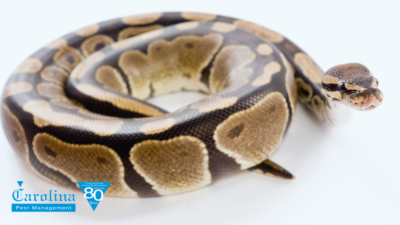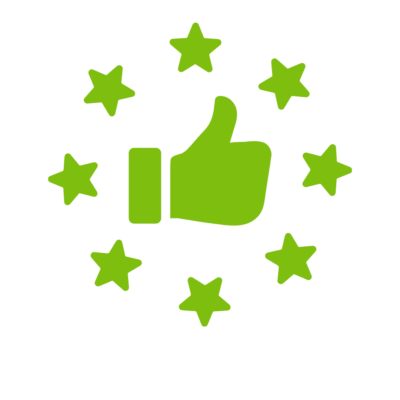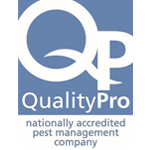Luckily, in most cases, snakes are docile creatures that want little to nothing to do with humans. In fact, they can prove beneficial since their diets have a tendency to be made up of rodents and insects. However, if a snake is venomous, the reptile can pose a significant risk to you and your household pets. Carolina Pest Management is here to help if you fear a dangerous snake has taken up residence inside or outside your home.
Take $15 Off
Enjoy a discount off your initial general pest service when you sign up for a quarterly service plan.
How to Identify a Snake Problem

Seeing a snake in your home can often be the first and most alarming sign of a problem. Snakes vary in length from a few inches to several feet long. The most common trait shared among snakes is the lack of extremities. Also, they don’t have eyelids. A snake's skin can have vivid colors such as bright reds and greens or darker browns and blacks. Venomous snakes will often have triangular-shaped heads and pupils that resemble an elliptical shape. Snakes may live near trees or head toward areas with robust insect and rodent populations. Any snakes you come across (dead or alive) should not be removed without professional assistance.
- Note any trails in the grass or dirt on your property. If you do have a snake or multiple snakes living on your land, you may spot distinct winding trails as they travel to different areas looking for food and shelter.
- Notice the snake at their most active times. Snakes hibernate during the winter, so you’re more likely to come across them during the warmer months. They also have a tendency to be more active at night as opposed to the daytime.
- Identify a snake hole. Snakes are not burrowers and will frequently use holes previously made by other creatures. The main characteristic of a snake hole is smoother sides with less disturbed dirt.
- Check for snakes in hiding areas within your home. Although snakes tend to stay outdoors, you may find them in your crawlspaces, outbuildings, garages, and basements.
- Find shed skins in or around your home. Once snakes get out of hibernation, they quickly shed their skins.
- Locate a snake nest or eggs. Snakes usually give birth in the fall, so you may stumble upon a nest or eggs during the summertime. However, snake-nesting areas will probably be in cold, dark locations.
Our Charlotte Snake Inspection Process
After speaking with Carolina Pest Management about your concerns, we will come out to your property to start the inspection process. We’ll use protective gear as we probe areas where a snake is likely to hide: beneath furnaces, behind staked boxes, under sheds, and many other hotspots we’ve seen before. During our inspection, we may even come across droppings and odors associated with snakes. Some snakes release a musky scent when threatened. Snake scat look similar to bird droppings because it also has a liquid portion coupled with brown stool. Our goal during the inspection will be to identify the type of snake in your home or yard and determine the extent of the infestation.
Charlotte Green Snake Treatment

Dealing with snakes requires a particular set of skills. You don’t want to trust just anyone to come to your home and get rid of any snakes you feel are a threat. Never use poisons or DIY traps since snakes have many legal protections. Carolina Pest Management helps develop a multi-faceted plan with each of our clients to safely remove harmful snakes from your property. Our goal is to help you and your loved ones stay protected from snake bites. Allow us to arrange the safe trapping and relocation of any snakes you have crossed paths with inside or outside the home.
Snake Maintenance
Stopping a snake invasion before it happens is always much easier than trapping and releasing the stealthy creatures. To naturally make your yard or home less appealing to snakes, you need to remove any potential food and water sources. Don’t leave out any pet food or water bowls. Firmly shut any compost bins you have in the yard. If you have a rat or mouse problem (something we could also help you with), you’ll want to address it immediately.
Additional steps you can take to control snakes:
- Seal any evident entrance points into your home’s crawlspaces or basements.
- Mow the lawn regularly since snakes prefer to hide and crawl in spots where the grass is overgrown.
- Remove any piles of building materials such as wood and bricks. If you do have a firewood pile, elevate it at least one foot off of the ground.
- Cover any open drainpipes with hardware mesh.
Charlotte Snake Removal Frequently Asked Questions
How much does snake removal in Charlotte cost?
Homeowners should expect to pay around $175 to $250 for snake removal in Charlotte. Snake removal costs depend on the type of snake on the property and its location. When snakes hide in hard-to-reach areas, the cost may increase due to the difficulty that a technician will have accessing the area. In addition, if there are numerous snakes that require removal or if a nest is discovered, snake control prices will increase. Most homeowners consider snake removal an emergency, as some species of snakes in our region are venomous. If you discover a snake in your yard or home, please remain at a safe distance from it until a professional can arrive to remove it. Snake removal should not be a do-it-yourself job; hire professionals who know the precautions to take to avoid injury.
Should I use snake repellent to protect my property?
The use of chemical pesticides as a snake control method is not always recommended because other animals may inadvertently be harmed in the process. As an example, a snake exterminator may recommend adding a chemical like nicotine sulphate to a snake’s water source to kill the animal. However, household pets or birds may accidentally drink the poison as well. If a snake is attacking a chicken coop and consuming eggs, a snake exterminator could recommend lacing the eggs with strychnine. Yet, poisoned eggs are hazardous to the health of family members and other animals, so that can be a dangerous approach. Repellent chemicals are less powerful than pesticides, but they are still not a perfect snake pest control method, as they could cause harm to other animals and people in the area; small snakes have been reported to die after even a limited amount of contact with the repellent. Also, repellents often pose a danger to pets and children, especially if they are not used properly. Always talk to a professional pest control company before using any repellents.
What should I do if I've been bitten by a snake?
If you or a family member has been bitten, call the Poison Control Center at 1-800-222-1222 immediately for advice. For household pets, you can contact the National Animal Poison Control Center at 1-800-426-4435 for immediate assistance. Pain, swelling, bruising, and redness at the site of the injury often occur after snake bites. If you or someone you know has been bitten, stay calm until help can arrive. Follow instructions from emergency personnel. There are numerous old wives tales about how to treat a snake bite that you should avoid. For instance, you shouldn’t attempt to suck out the venom or use a knife to slash at the bite. Instead, wash the area with mild soap and warm water. Cover the area with a clean and dry dressing until medical personnel is available to assess the bite. Take precautions to prevent snake bites as well. Snakes are commonly found throughout the Carolinas swimming in bodies of water. Be aware that snakes may be concealed by floating objects, rocks, or tree branches. If you happen to see a snake, don’t panic, and instead back away from it slowly. When a snake is on your property, contact a snake pest control agency immediately.
Will snakes cause property damage?
Are there any tricks to detecting a suspected snake problem?
Since snakes like to hide, you should check for indirect evidence of their presence inside the home, such as skins they’ve shed. Snakes shed their skin on an average of two to four times a year. Young snakes will shed their skin more often—usually every two weeks. Slither trails may also be seen across dirt or sandy surfaces, so look out for them. Snake droppings are another sign of a snake problem. Snake feces is typically white and may contain fur, bone, or teeth—depending on the reptile’s diet. You should avoid trapping snakes on your own, but some homeowners with hard to spot snake problems have found success in detecting snakes by spreading out flour near appliances that give off heat like refrigerators and stoves. In the event you find snake tracks across the flour, you have confirmation a snake has gotten into the home. Professional snake control services should always be used to confirm that a snake is on your property and determine how to resolve the situation. A trained snake control technician can best identify the species and determines what type of snake removal method is safest.
What To Do When You Find A Snake In Charlotte
Charlotte is a beautiful city with lush trees and vegetation, but its natural look and feel can also make it an ideal environment for pests like snakes. Most of the snakes you’ll come across in Charlotte are harmless, but there are a few venomous snakes that you could come across at home or in public […]
Read More »Charlotte Snake Control Technicians
Although they look frightening, most snakes in the Carolinas are harmless and won’t bite unless provoked. However, it’s natural to want the snake removed from your home or yard. When you think of a snake exterminator, you may mistakenly assume snakes on your property will be put down with the use of harmful chemicals. Modern snake exterminators use safe and effective wildlife control removal techniques. Once dispatched to your property, a Carolina Pest Management technician will handle snake removal in a humane and professional manner by trapping and relocating the animal. The goal of a snake exterminator will be to keep all family members safe from bites while using all-natural pest control and wildlife control methods.



